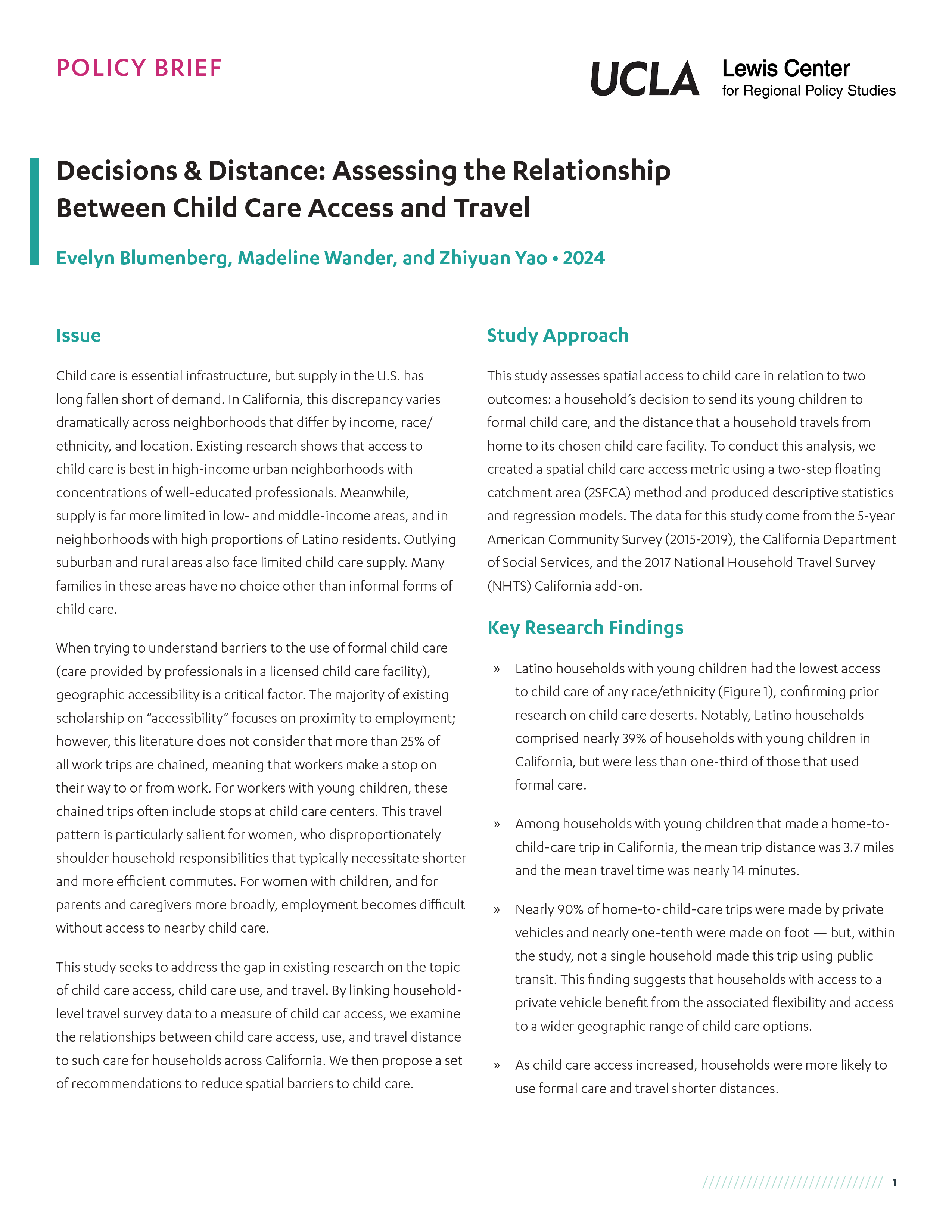Date: April 22, 2024
Author(s): Evelyn Blumenberg, Madeline Wander, Zhiyuan Yao
Abstract
Child care is essential infrastructure, but supply in the U.S. has long fallen short of demand. In California, this discrepancy varies dramatically across neighborhoods that differ by income, race/ethnicity, and location. This study seeks to address the gap in existing research on the topic of child care access, child care use, and travel. By linking household-level travel survey data to a measure of child car access, we examine the relationships between child care access, use, and travel distance to such care for households across California. We then propose a set of recommendations to reduce spatial barriers to child care.
About the Project
The COVID-19 pandemic has laid bare the necessity of childcare as essential infrastructure. Without access to affordable childcare, working outside of the home is difficult or, in many cases, impossible. The need for child care is particularly pressing for mothers who continue to bear disproportionate responsibility for the care of their children. Childcare is in short supply and access to child care varies across neighborhoods by income, race, and ethnicity. Given the critical importance of childcare access to women’s ability to work, the research team will study child care-related travel in California, a topic that has received relatively little study. The researchers are particularly interested in testing whether geographic disparities in access to child care are associated with the distance that parents travel to child care centers.


